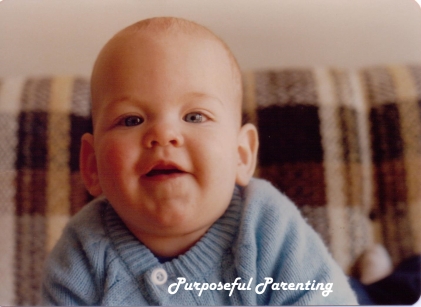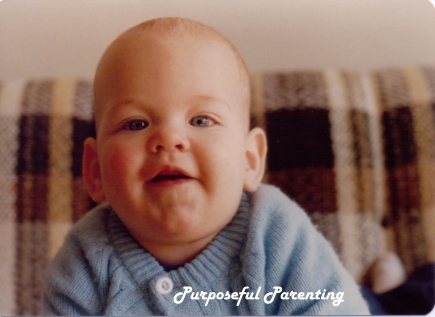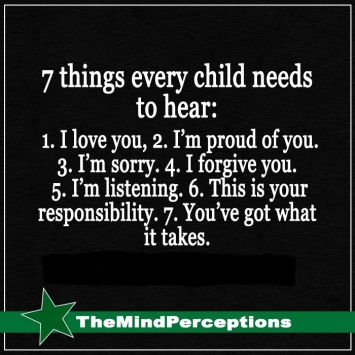Stomach or back? Which is the best sleeping position for the baby? The answer will depend on the year the question is asked. Putting baby to sleep on his back was recommended when my first child was born in 1978. However, seven years later, when my daughter was born, putting her to sleep on her stomach was the new advice. Yet again, when my fifth child was born in 1995, doctors were recommending back sleeping again.

Our youngest in 1995. Crib bumpers are taboo now.
It is a wonder my children survived their childhood. They did not see a dentist or receive fluoride until they were three years old. Now these things are recommended to be done as soon as the first tooth has erupted the gum line.
As a parent, you may be bombarded with many questions. Should my child sit in a bumbo seat, or not? Should I bottle or breast feed. Cloth or disposable diapers? The August 2016 issue of Parents magazine carries an article titled, “health “facts” you may have wrong”. www.parents.com It covers topics such as the BRAT diet, using walkers, drinking juice, cereal, teething, and car seats. It also covers conventional wisdom changes. With newer research, come new thoughts and recommendations.

Our firstborn in 1979.
So what is a parent to do? Do the best you can. That is a phrase I often heard my parents say. They did the best they could. What does that mean? It means at the time of the decision, whatever it was, using the best information they had, they made a decision. No one can make a decision today based on information not yet available. There is no benefit in beating ourselves up today for what we did not know yesterday or last month.
Whatever your parenting style may be, there is probably a book written about it. We are inclined to discount or ignore the advice with which we think we disagree. We gravitate towards what we already like and are doing. However, if your style is not producing the results (behavior and/or character traits) with which you are pleased, then it may be time to consider other approaches or methods of parenting.
Parents do make mistakes. We are learning as we go. Every age and stage is a new uncharted territory to explore together. It is very confusing and difficult when the rules or guidelines or recommendations are frequently changing. Need proof? Just ask your parents about the kinds of car seats they used for you.
When you child reaches the teenage years, they may inform you of everything you did not know or do “right” as you parented them. Be patient. Their opinion is likely to change when they are parents themselves. Incredibly, perspective changes our views.
Whatever parenting challenges you may be facing, please be encouraged. Parenting is an amazing adventure. Yes, much of it is quite difficult. You can ask the Lord to help you and He will. Many times He has given me insight and ideas for particular issues and problems. When my children were 8, 5, 3, and 1 years old the three year old struggled everyday with emotional meltdowns. I prayed about this and the idea I had, which I believe came from the Lord, was to hold him every day for at least an hour. Did I have an extra hour? No. But, I tried to do this every day. This extra physical affection made a huge difference to him and became a benefit to our household. What family wouldn’t benefit from fewer meltdowns?
What part of parenting do you find most challenging? What do you wish you knew sooner than you did?
Proverbs 22:6 “Train up a child in the way he should go, And when he is old he will not depart from it.” NKJV




